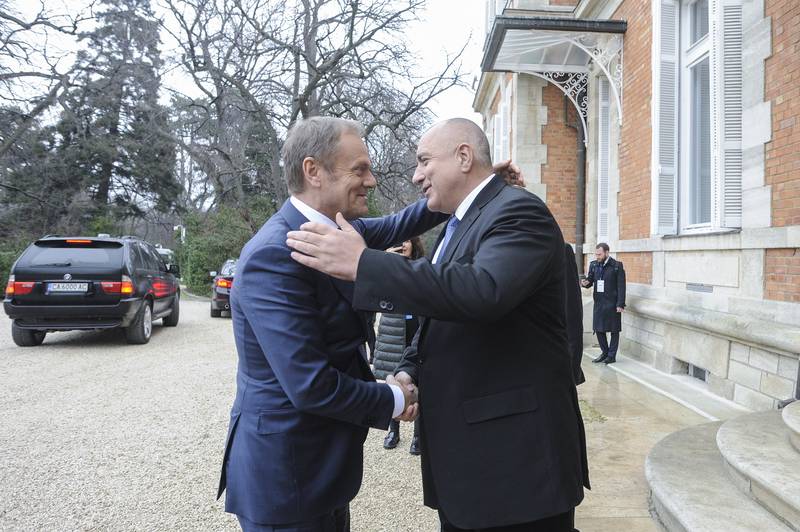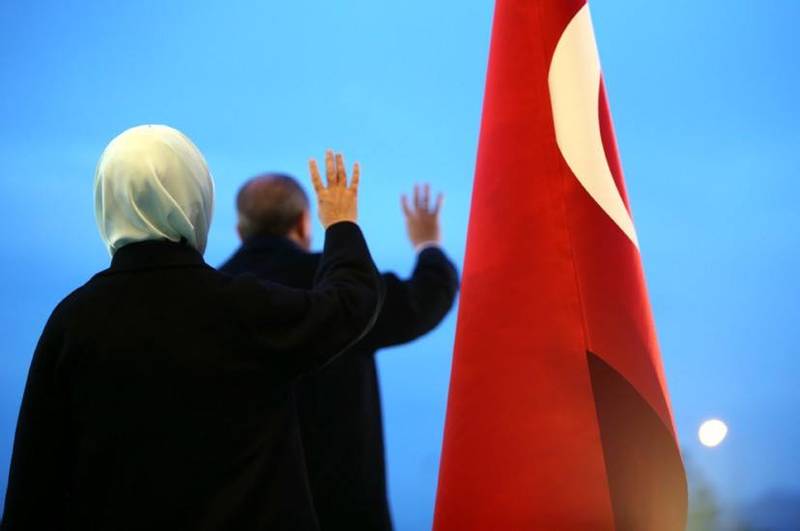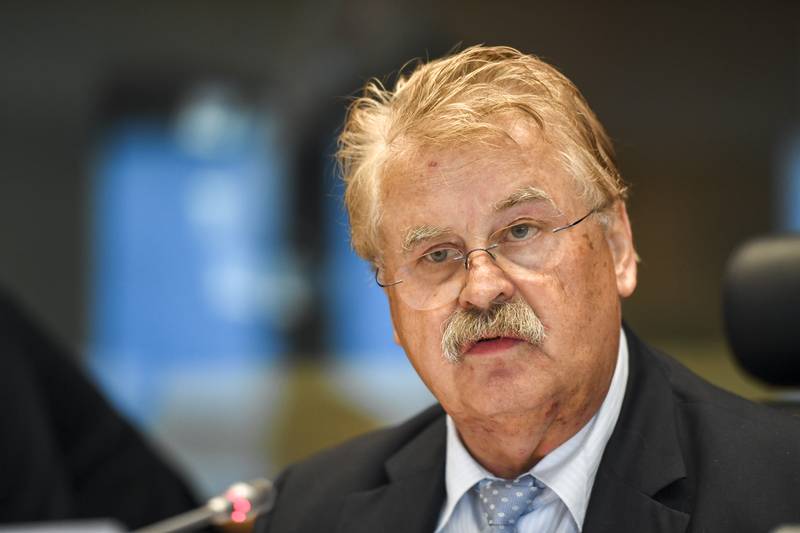Is a mature conversation about Turkey possible in Bulgaria
Adelina Marini, July 12, 2011
 Quite often any conversation about Turkey in Bulgaria is reduced to the uncomfortable for both sides events of our common history. With a lot of emotion, little reason and without any perspective of the conversation. This is why we with the analysts from the newly established European Institute for Strategies and Policies | ESPI and StratCom, Vladimir Shopov and Plamen Ralchev, dared to organise a joint discussion. The topic we picked up for the conference is Turkey and the EU: Formulas for a Common Future. We have selected this topic firstly because Turkey is the oldest and most zealous candidate for EU membership and, secondly, because Bulgaria for 5 years now is part of this Union and has to have a clear position on the matter.
Quite often any conversation about Turkey in Bulgaria is reduced to the uncomfortable for both sides events of our common history. With a lot of emotion, little reason and without any perspective of the conversation. This is why we with the analysts from the newly established European Institute for Strategies and Policies | ESPI and StratCom, Vladimir Shopov and Plamen Ralchev, dared to organise a joint discussion. The topic we picked up for the conference is Turkey and the EU: Formulas for a Common Future. We have selected this topic firstly because Turkey is the oldest and most zealous candidate for EU membership and, secondly, because Bulgaria for 5 years now is part of this Union and has to have a clear position on the matter.
For the past 20 years Turkey has changed dramatically and from a country with  a fragile political stability under the vigilant eye of the military, with hyper inflation and hampered economic activity, currently it is the 16th largest economy in the world and the 6th in Europe. It is a member of the Group of twenty (G20) - a group of developed and emerging economies that define the global order. For the past 10 years Turkey has managed to prove itself as an important factor in the Middle East by applying the policy of zero problems with its neighbours. A process which started to attract intimidated looks in the EU and the US.
a fragile political stability under the vigilant eye of the military, with hyper inflation and hampered economic activity, currently it is the 16th largest economy in the world and the 6th in Europe. It is a member of the Group of twenty (G20) - a group of developed and emerging economies that define the global order. For the past 10 years Turkey has managed to prove itself as an important factor in the Middle East by applying the policy of zero problems with its neighbours. A process which started to attract intimidated looks in the EU and the US.
 In other words, Turkey has gained new self-confidence of an influential member of the international community, which speaks audaciously about its interests and states them clearly. But still a lot of problems remain unresolved, which the EU constantly repeats - human rights, especially rights of women; the right of gathering and of association; freedom of press and pluralism of opinion. Fears emerged of autocratism in the end of Prime Minister Recep Tayyip Erdogan's second term, whose Justice and Development Party (AKP) won convincingly the general elections in June, thus creating an opportunity for Erdogan to assume for a third consecutive time the premiership.
In other words, Turkey has gained new self-confidence of an influential member of the international community, which speaks audaciously about its interests and states them clearly. But still a lot of problems remain unresolved, which the EU constantly repeats - human rights, especially rights of women; the right of gathering and of association; freedom of press and pluralism of opinion. Fears emerged of autocratism in the end of Prime Minister Recep Tayyip Erdogan's second term, whose Justice and Development Party (AKP) won convincingly the general elections in June, thus creating an opportunity for Erdogan to assume for a third consecutive time the premiership.
In the foundation of the EU-Turkey relations, however, there is a lack of trust, caused  mainly by the presence of a significant Turkish migrant minority in several of the big member states, most of all in Germany. The cultural and religious differences are the basis for the lack of understanding and the strengthening of nationalist feelings in the past few years.
mainly by the presence of a significant Turkish migrant minority in several of the big member states, most of all in Germany. The cultural and religious differences are the basis for the lack of understanding and the strengthening of nationalist feelings in the past few years.
And because of the lack of trust, and also because of the different paths of development the EU and Turkey follow, the time has come for us to talk about, firstly inside the EU and then with Turkey itself, whether we watch in the same direction and, if not, how can we cooperate. This is why we have chosen the title "formulas for a common future", because it is not necessary EU membership to be the only possible way for partnership.
 We have divided the discussion into two panels: Turkey: A Neighbour and A Partner in the EU and Turkey and the EU: A Look from Bulgaria. In the first panel the main speakers are Vladimir Shopov, a political scientist and a Director of ESPI. He will speak about How Do We Think of the Benefits and Challenges of Turkey’s EU Membership? Dimitar Bechev of the European Council on Foreign Relations will talk about the EU and the Turkish Foreign Policy, and Boryana Stoeva, a senior fellow, ESPI. She will focus on Spain and Turkey: Show of Solidarity, Common Interests or 'Invisible Opportunities'?
We have divided the discussion into two panels: Turkey: A Neighbour and A Partner in the EU and Turkey and the EU: A Look from Bulgaria. In the first panel the main speakers are Vladimir Shopov, a political scientist and a Director of ESPI. He will speak about How Do We Think of the Benefits and Challenges of Turkey’s EU Membership? Dimitar Bechev of the European Council on Foreign Relations will talk about the EU and the Turkish Foreign Policy, and Boryana Stoeva, a senior fellow, ESPI. She will focus on Spain and Turkey: Show of Solidarity, Common Interests or 'Invisible Opportunities'?
The speakers in the second panel are: Plamen Ralchev, StratCom, who will  speak on the topic Bulgarian (Mis)Understanding of Turkey and Its EU Membership: Communication Deficits and Strategic Complexities. Evgenii Kanev, Chair of the Board of ESPI will talk about the Bulgarian economic activity in Turkey, and Marin Lessenski with the Open Society Institute will focus on the topic Bulgarian-Turkish Relations: Political and Public Factors. Ralitsa Kovacheva and myself will be moderating the panels.
speak on the topic Bulgarian (Mis)Understanding of Turkey and Its EU Membership: Communication Deficits and Strategic Complexities. Evgenii Kanev, Chair of the Board of ESPI will talk about the Bulgarian economic activity in Turkey, and Marin Lessenski with the Open Society Institute will focus on the topic Bulgarian-Turkish Relations: Political and Public Factors. Ralitsa Kovacheva and myself will be moderating the panels.
We will make a full video footage of the conference and later you will be able to see it on euinside or on our YouTube page.
 Donald Tusk, Boyko Borissov | © Council of the EU
Donald Tusk, Boyko Borissov | © Council of the EU | © Turkey Presidency
| © Turkey Presidency Elmar Brok | © European Parliament
Elmar Brok | © European Parliament